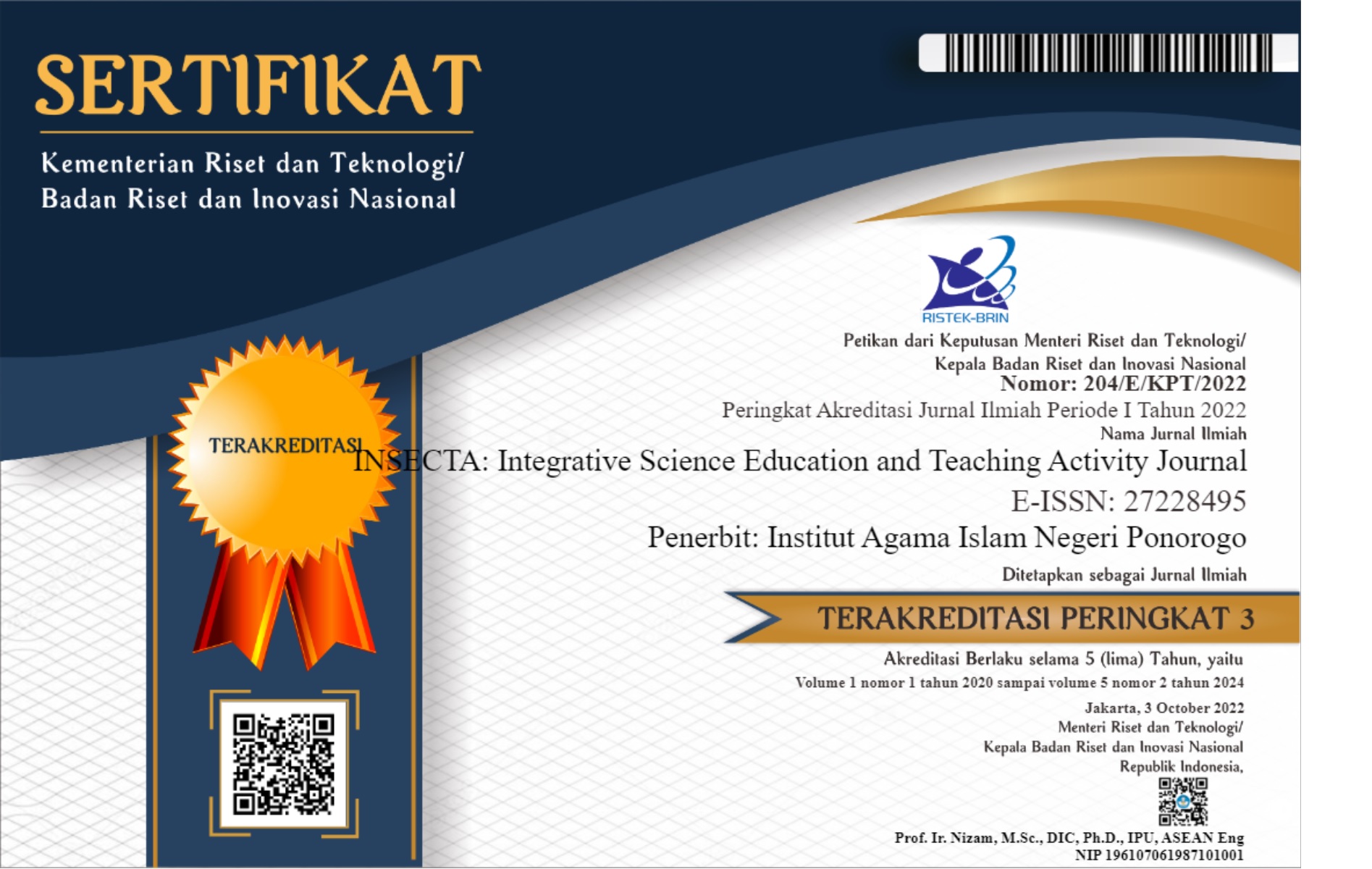PROBLEM BASED LEARNING MODEL THROUGH CONSTEXTUAL APPROACH RELATED WITH SCIENCE PROBLEM SOLVING ABILITY OF JUNIOR HIGH SCHOOL STUDENTS
DOI:
https://doi.org/10.21154/insecta.v1i1.2059Keywords:
Problem Based Learning, Problem Solving AbilityAbstract
The purpose of this study is to determine the effect of the problem based learning model of learning on students' ability to solve science problems at SMPN 1 Siman Ponorogo. That is because PBL learning models that take advantage of real-world (contextual) problems will provide opportunities for students to hone, grow, and improve their ability to solve science problems so that they can be applied in dealing with problems in daily life. This study uses a quantitative approach. This research method is quasi experimental design and the type of research used is experimental research with a non-equivalent group design experimental design. Data collection was performed using posttest questions which were then analyzed using inferential statistical data analysis techniques. The sampling technique used in this study is purposive sampling. The population in this study were all eighth grade students of SMPN 1 Siman. The sample in this study was class VIII A as an experimental class and Class VIII B as a control class. From the study obtained post test results which showed that the class with a problem based learning model through a contextual approach had a higher average value when compared to the class using conventional methods, namely 84.54 and 50.45. Hypothesis test results obtained tcount> ttable is 11.747> 1.681, so Ha is accepted and H0 is rejected. From these calculations it can be concluded that there is a significant influence on the Problem Based Learning model through a contextual approach to the ability to solve science problems of Grade VIII students at SMPN 1 Siman Ponorogo.








